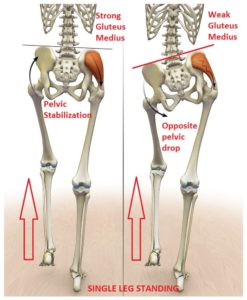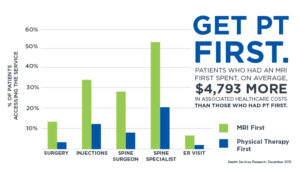Are You Wondering if Physical Therapy is the Right Solution for You?
Are you wondering if you need physical therapy? Physical therapy isn’t just for those recovering from surgery or physical trauma. In fact, it has a ton of benefits that many people are not even aware of. Anyone who is in pain is a good candidate for physical therapy. Why work around your discomfort when you can eliminate it?
Here is how physical therapy can help you:
1. Maximize your Movement:
Anyone can understand how important pain-free movement is for quality of life and independence. Often times, imbalances or muscle weaknesses are what cause pain. For example, many people who experience knee pain have weak hips. Your hip muscles control the position of your knees, and weak hip muscles can cause you to make unnatural thigh movements. This can put excessive stress and pressure on your knee cap and knee joint. By working with a physical therapist to improve overall your hip strength and balance, you can learn to keep your knees in the correct position and, eventually, relieve your knee pain.
This is just an example of the many ways physical therapy can help you maximize your movement. Our bodies are designed to move in a very precise way. However, when we have muscle weaknesses that prevent or hinder us from moving properly, we unknowingly slip into incorrect movement patterns. These compensatory movements may cause pain and eventually lead to injury.

2. Avoid Surgery and Other Medical Expenses:
Surgery can be expensive, invasive, and hard to recover from. Before undergoing a surgical procedure, you should consider physical therapy. If you’re suffering from knee osteoarthritis, spinal stenosis, or rotator cuff tears, physical therapy has proven to be as effective as surgery in some cases. A recent study from the New England Journal of Medicine indicated that there was no significant difference in functional movement after six months between patients who had undergone surgery coupled with postoperative physical therapy and those who received standardized physical therapy alone.
Some patients may be able to avoid the risks and expenses associated with surgery all-together by considering physical therapy as a good first course of action. Since physical therapists are experts in assessing pain and movement dysfunctions, going to a physical therapist initially can save you thousands of dollars on medical expenses.

You can read more about this study here: http://www.apta.org/Media/Release/Consumer/2013/3/21/
3. Injury Prevention and Other Athletic Benefits:
Physical therapy is usually regarded of as part of the recovery or rehabilitation process, especially in relation to sports. Although this is true in many cases, athletes should also consider incorporating physical therapy into their training regimens. Undergoing treatment can help athletes get ready for upcoming competitions, prevent injuries, and maintain their fitness levels.
Upper level athletes should pay extra attention to injury prevention. Missing out on practice or games due to an injury can be devastating to an athletic career. With the help of a physical therapist, athletes can develop a proper injury prevention regimen that is based specifically on their sport in order to reduce the risk of damage.
At the end of the day, it is the little bio-mechanical flaws that separate the regular athletes from the superstars. Physical therapists are trained to identify and correct inefficiencies in the body. This not only helps to prevent injury, but also improves performance.

So, Do You Need Physical Therapy?
If you experience pain after exercise that lasts for more than 24 hours, are an athlete, or are interested injury prevention, then you may be a good candidate for therapy. To schedule an evaluation, call 800-PT-FIRST!
*As a reminder, always discuss any questions or concerns with your physician regarding your own health and dietary needs, as the information written should not replace any medical advice.
